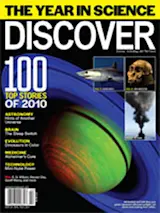Helen Fisher, a biological anthropologist at Rutgers University in New Brunswick, New Jersey, knows all about love. She has observed the brain regions associated with romantic love light up as a man gazes at his inamorata, both in new relationships and in decades-long marriages. Fisher seems to have become a bit jaded by years of Hallmark moments, however. “Who cares about people who are happily in love?” she wants to know. “It’s when you’ve been rejected that you turn into a menace.” So she has started exploring the science of heartbreak instead.
In a study published in May, Fisher and her colleagues asked 15 people who had recently been dumped but were still in love to consider two pictures—one of the former partner and one of a neutral acquaintance—while an MRI scanner measured their brain activity. When looking at their exes, the spurned lovers showed activity in parts of the ...














